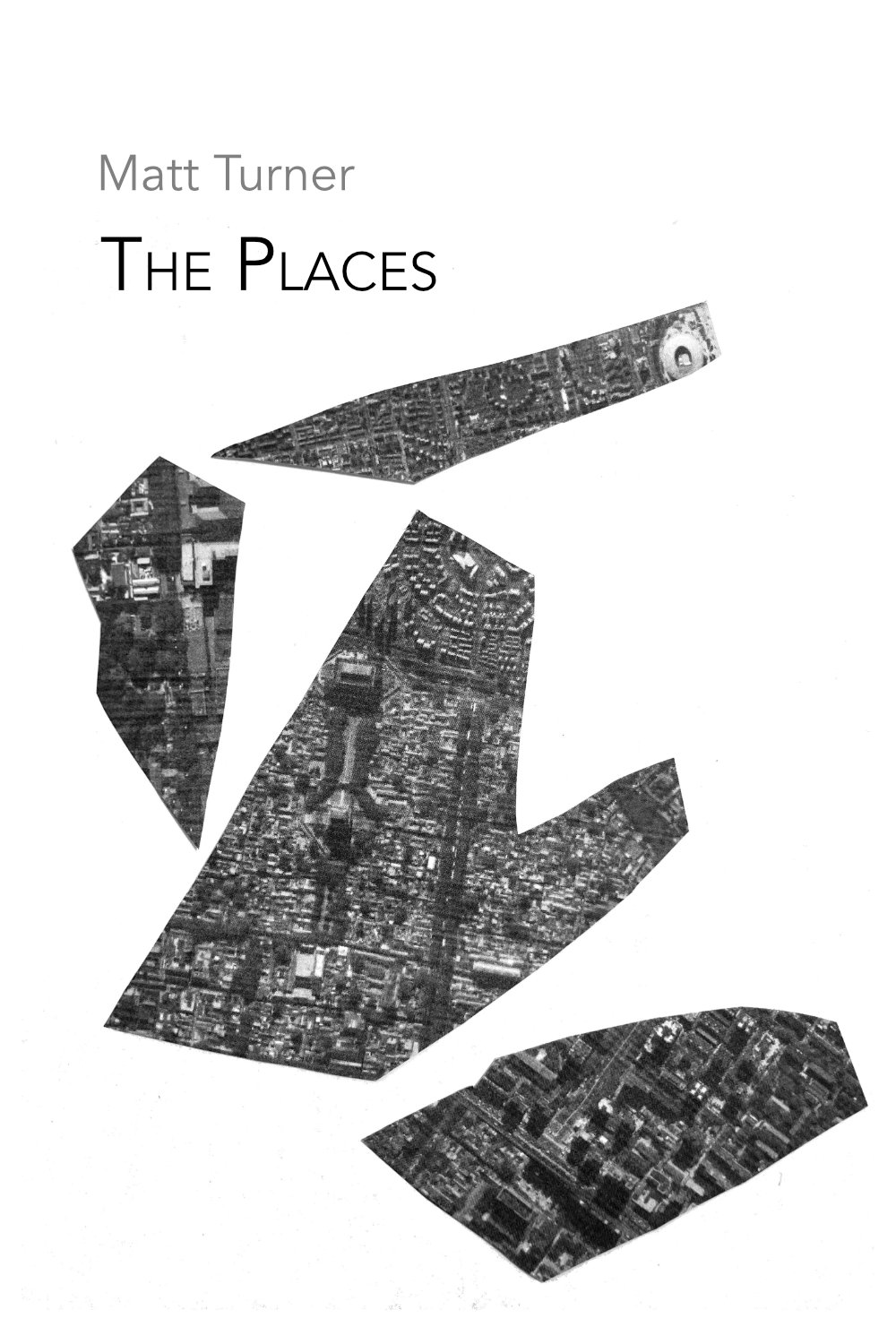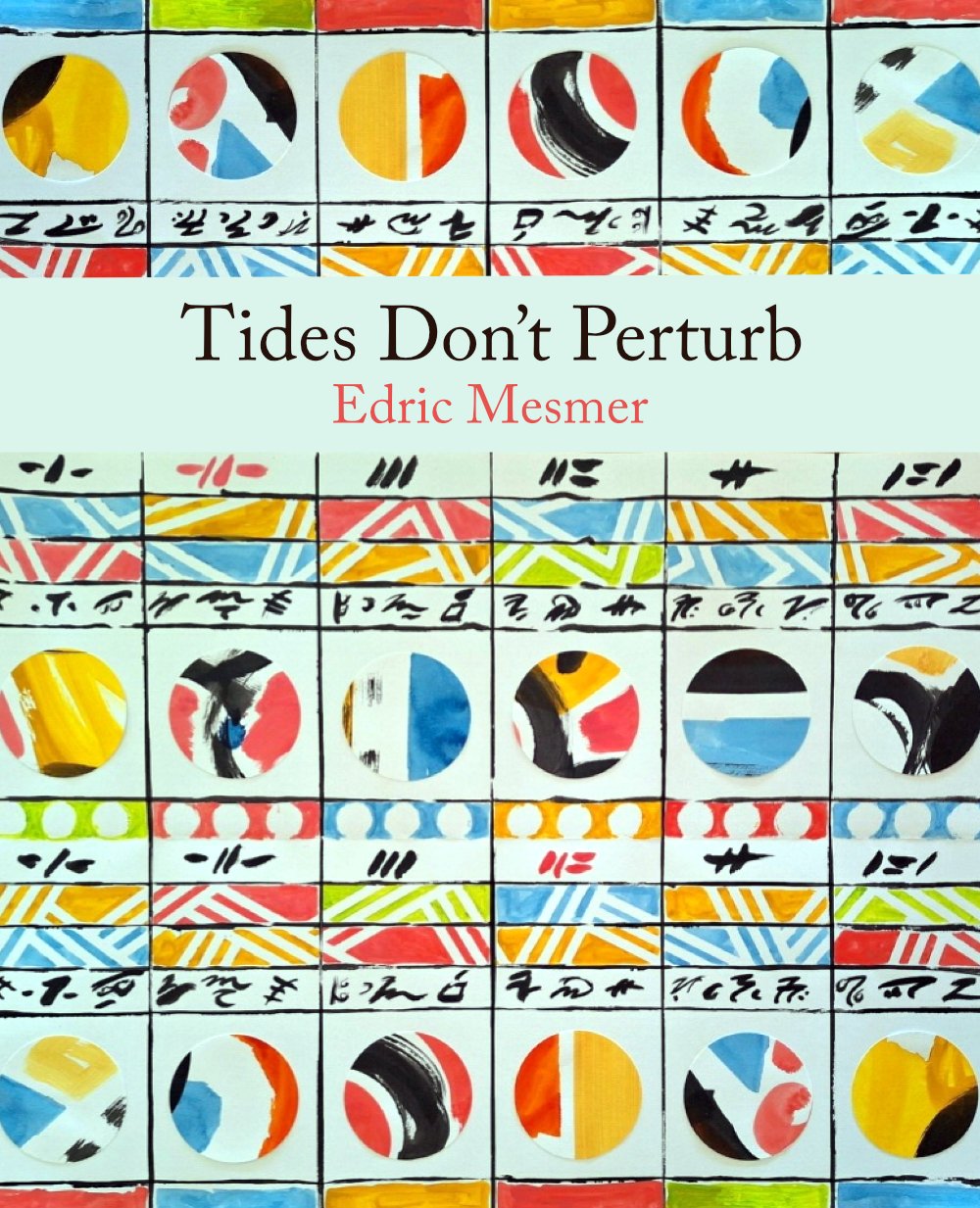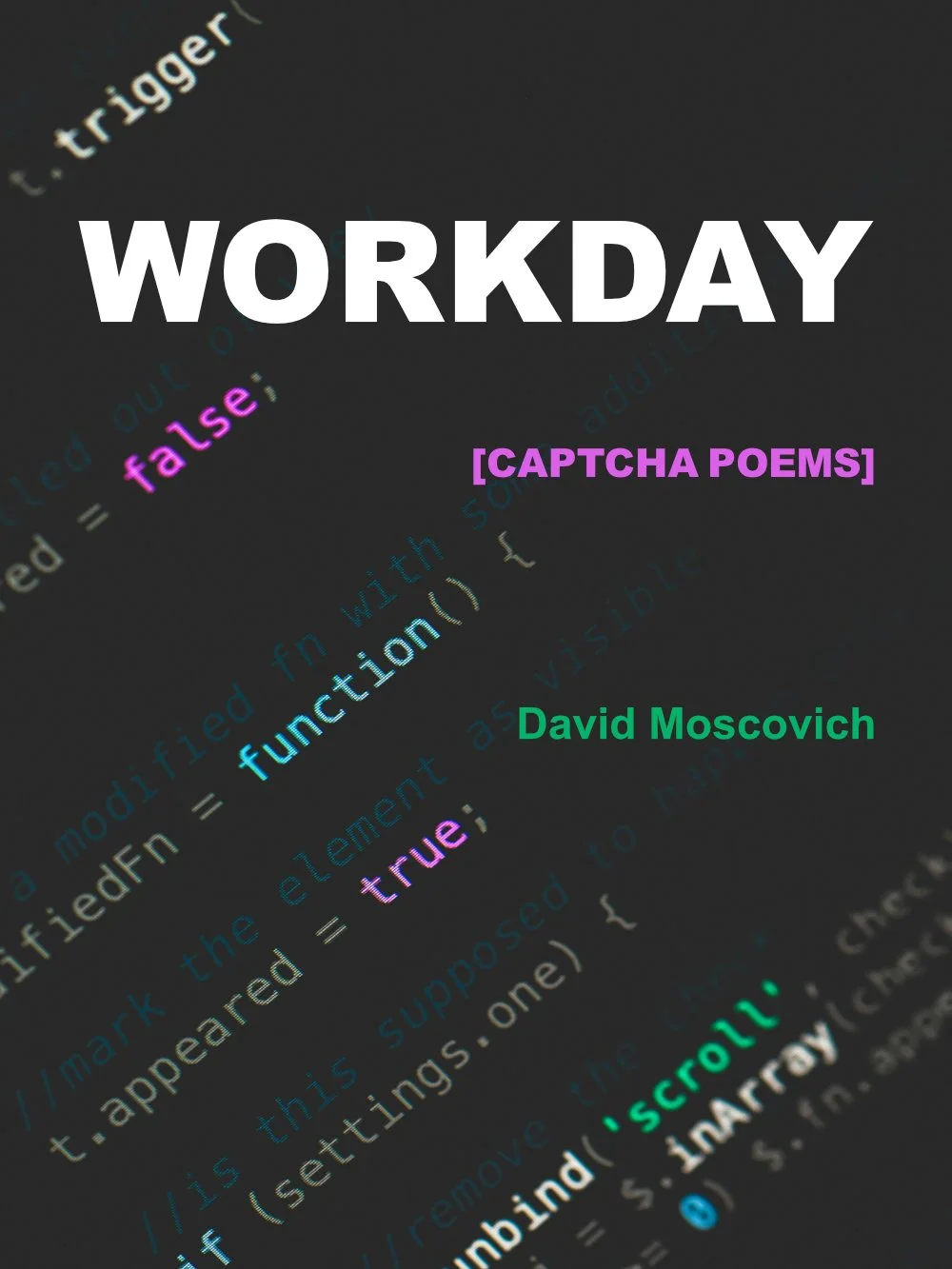Geoffrey Gatza’s Self Geofferential is a hybrid extravaganza of poetry and collage that unfolds in a range of innovative literary and visual forms. Gatza’s playful, self-reflective writing and graphic art is infused with such exuberant inventiveness that it finds new lights shining in a night sky filled with stars. “The whole world is a hurricane,” Gatza writes. Yet even when the book assumes an elegiac voice, Self Geofferential points us toward a vision of “Flowers growing / in bits of broken everything.” With the serious whimsy of a Zen master, Gatza’s commitment to the present moment is a reminder that the world can be luminous in its brokenness: “In a home where nothing really matters / at all, life will never be this easy again.”
—Tony Trigilio
Geoffrey Gatza’s Self Geofferential brings together text and visual work in variations of what it means both to live in one’s imagination and outward in one’s time, that is, to live in Kenmore, its enchanting autumn leaves. In “America” Gatza writes:
“America is in decline once again, but you cannot see it from here,
You must go around the corner, then down a block to Buffalo to see it.
To see America in decline you must leave the imagined world behind.
To see America, you must leave your home, no longer write poetry, and live.”
Gatza’s work offers an important alternative to how easily any human can slip to cruelty.
Here is a sweetness, an alert sensing of the world and creatures all around if we care to notice. Attentiveness. His poems call out: Come live and re-live a fairy tale world, that magic place of terror and extraordinary shape-shifts, where bully brothers are de-fanged, mean sisters deflected, and abusive parents can be left on the other side of an imaginary door. His elegiac remembrance carves space for abandoned artists, dead poets, lost friends, wounded animals, aging, illness, decline.
Gatza’s poems urge us to see, feel exalted in the ordinary beauty of our surround, look out at a new world each moment. Yet mid-winter, our dream is of spring’s warmth, early flowers, myths, stories of heroes and sub-heroes.
His collages invite us: Tape a banana to the wall, and call it ours. Write poems that serve up a rare joy of outward contemplation and thrill an inner life.
—Deborah Meadows, author of Bumblebees
Geoffrey Gatza is the author of the poetry collections The House of Forgetting (2012), Apollo: A Conceptual Poem (2014), and A Dog Lost in the Brick City of Outlawed Trees (2018).
Divya Victor, in an article for poetryfoundation.org, said of Apollo: A Conceptual Poem “The diversity of these works echoes the complexities of the subject, but together they posit something specific, the heightened relationship between the interior self and the exterior world.”
Gatza’s poems have been published in anthologies, as well as magazines and journals including Fence, Tarpaulin Sky, The Pickled Body, Peach Mag, Tupelo Quarterly and various others. His play on Marcel Duchamp was staged in an art installation in Philadelphia and performed in NYC.
Gatza is an award-winning editor, publisher and poet. He is the driving force behind BlazeVOX, an independent press located in Buffalo, NY, specializing in innovative fictions and wide ranging fields of contemporary poetry. Geoffrey Gatza is lives in Kenmore, NY.
Reviewers download here





